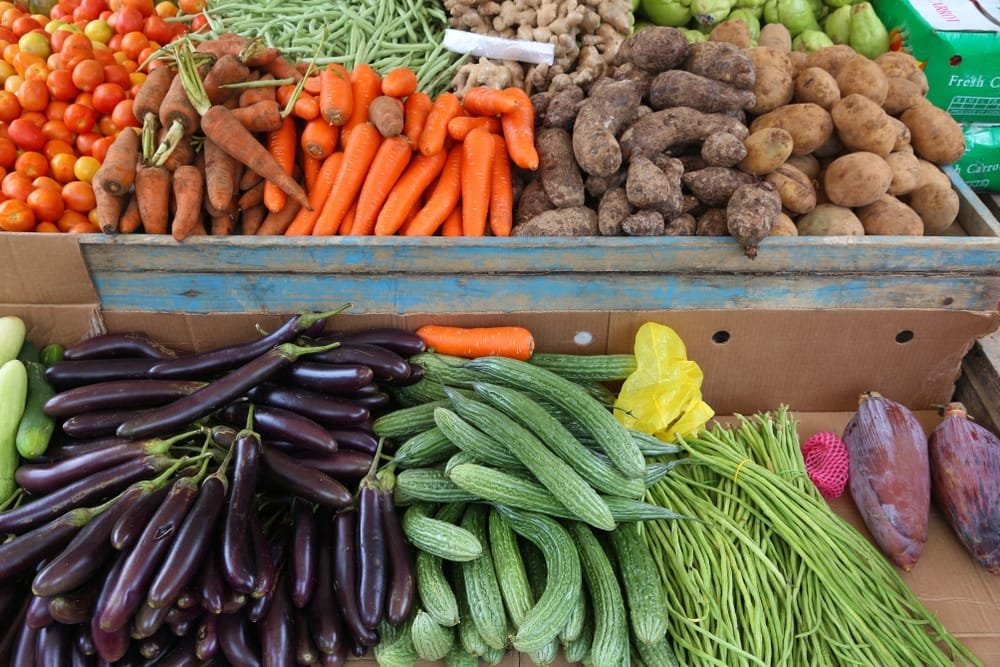The Department of Agriculture in Cagayan Valley has developed a Zero Energy Cooling Chamber (ZEC-C) to help curb post-harvest losses among vegetable farmers. Designed as a low-cost, electricity-free storage solution, the ZEC-C helps keep crops like tomatoes and eggplants fresh for longer, aiming to reduce spoilage, cut waste, and boost farmers’ incomes.
The ZEC-C was the product of a two-year collaboration between agricultural researchers, local farmers, cooperatives, and agribusiness stakeholders, reflecting a unified effort to address crop spoilage through practical, community-driven innovation.
According to the Department of Agriculture (DA), a standard ZEC-C unit—with a 500-kilogram storage capacity—costs around P45,000, with larger models offering greater cost efficiency. Economic assessments indicate strong returns, with a projected 71% return on investment (ROI) for tomatoes and 32% for eggplants over a five—to 21-day storage period.
(Also read: Hedcor Backs Bakun’s Growing Premium Coffee Industry)
Tech development
In Region II, lowland vegetable farming remains a key livelihood—but the short shelf life of crops like tomatoes has long plagued growers with losses at harvest time.
DA-Regional Field Office II Executive Director Rose Mary Aquino said this period often brings anxiety, recalling how vegetables are sometimes discarded by the roadside due to oversupply and spoilage. “We needed a solution to this persistent problem, and our Cagayan Valley Research Center delivered ZEC-C,” she noted.
Led by Mary Jane Ibarra of the Cagayan Valley Research Center in Ilagan City, the development team tested different walling materials—such as coconut coir, charcoal, and a bricks-and-sand blend—to determine the most effective combination for maintaining cool, stable conditions inside the zero-energy chamber.
Field tests in the Isabela towns of Aurora and Roxas revealed that using charcoal as insulation significantly cooled the storage chambers—dropping internal temperatures from 5°C to 10°C—while sustaining high humidity levels around 85 to 90%, conditions considered optimal for keeping vegetables fresh.
Aquino stated that the ZEC-C significantly extended the shelf life of key vegetables—keeping tomatoes fresh for up to 21 days and eggplants for around five, while crops like bottle gourd and sponge gourd remained in top condition for nearly a week. Freshness, firmness, and color were used as benchmarks.
(Also read: Ilocos Norte Fishers Protest P360B Offshore Wind Farm Threat)
Addressing the oversupply of vegetables
In early March, tomato farmgate prices in some areas dropped to just P4 per kilo amid a supply glut. With limited access to cold storage, many farmers had little choice but to sell at a loss—or discard their surplus entirely.
DA Secretary Francisco Tiu Laurel Jr. praised the DA-RFO II for its initiative, highlighting its alignment with the government’s efforts to bolster food security and boost farmers’ earnings. “This is the kind of creative thinking we need to modernize agriculture, increase farmer profits, reduce waste, and improve food security,” he declared.
The ZEC-C technology was launched in late March at the Nueva Vizcaya Agricultural Trading Center, where two one-ton capacity units were distributed. Additional units, ranging from 200 kilograms to one ton, will be allocated to various towns across Isabela.
Sources:
https://www.da.gov.ph/da-rfo-ii-unveils-zero-energy-cooling-tech-to-prolong-vegetable-shelf-life/

